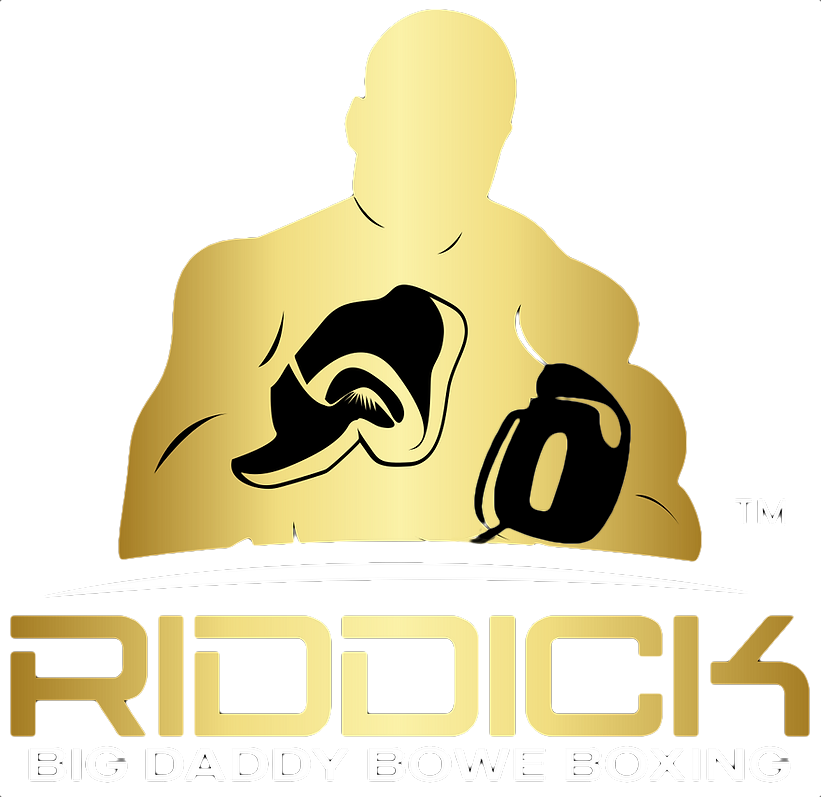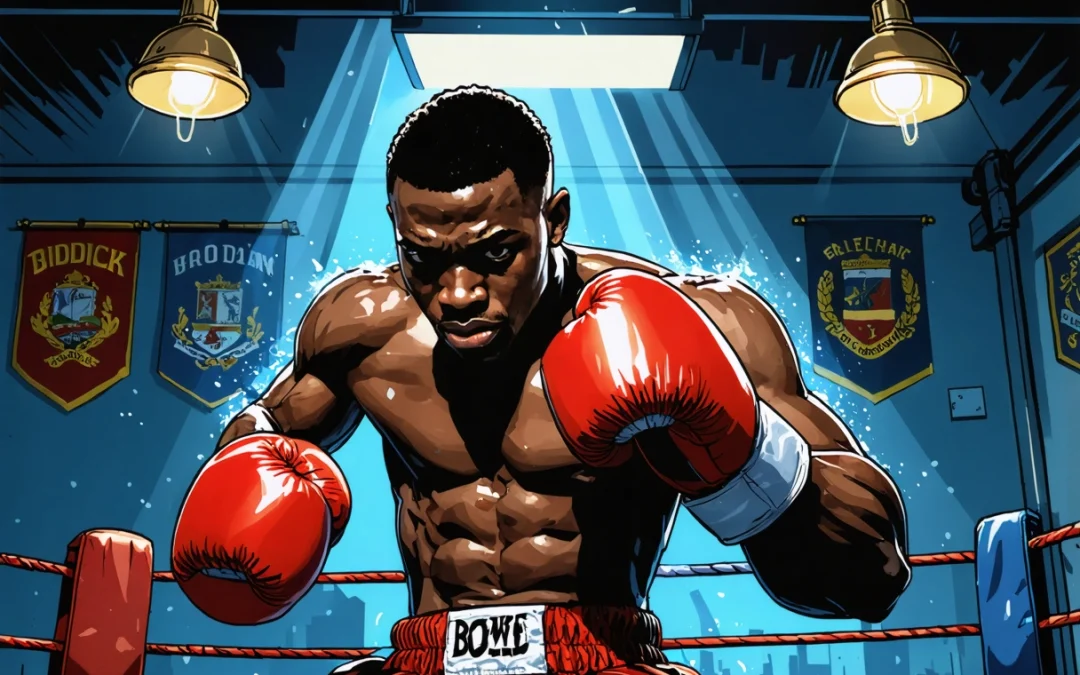From Olympic Gold to World Championship: The Inspirational Journey of Riddick ‘Big Daddy’ Bowe
Riddick “Big Daddy” Bowe stands as one of boxing’s most compelling figures, a heavyweight who captured the imagination of fans worldwide. His journey from the tough streets of Brooklyn to the pinnacle of boxing, winning Olympic gold and the undisputed heavyweight championship, is a tale of resilience, raw talent, and unyielding ambition. In this deep dive into the history and legacy of Riddick Bowe, we will explore his formative years, rise through the amateur ranks, Olympic triumph, meteoric professional ascent, legendary rivalries, and enduring impact on the sport. Bowe’s story is not just about victories in the ring but also about overcoming adversity, personal growth, and the indelible mark he left on boxing history.
Join us as we retrace the steps of this boxing titan, uncover lesser-known facts, and analyze why Riddick Bowe’s legacy continues to resonate with boxing enthusiasts and historians alike.
The Early Years: Brooklyn’s Rising Star
Born on August 10, 1967, in the Brownsville section of Brooklyn, New York, Riddick Bowe was the twelfth of thirteen children. Life in Brownsville was fraught with challenges—poverty, violence, and limited opportunities. Yet, Bowe found solace and purpose in the local boxing gyms. Under the watchful eye of renowned trainers, such as Eddie Futch, Bowe quickly distinguished himself as a formidable talent in the amateur boxing scene.
Bowe’s upbringing contributed to his unique blend of physical prowess and mental toughness. He often cited his mother, Dorothy Bowe, as his greatest motivator, encouraging him to channel his energies into boxing rather than the streets. His early amateur fights set the stage for a storied career, with Bowe rapidly climbing the ranks and gaining a reputation for his powerful jab, surprising agility, and relentless drive. The discipline and resilience he developed during these formative years would prove crucial in his future Olympic and professional successes.
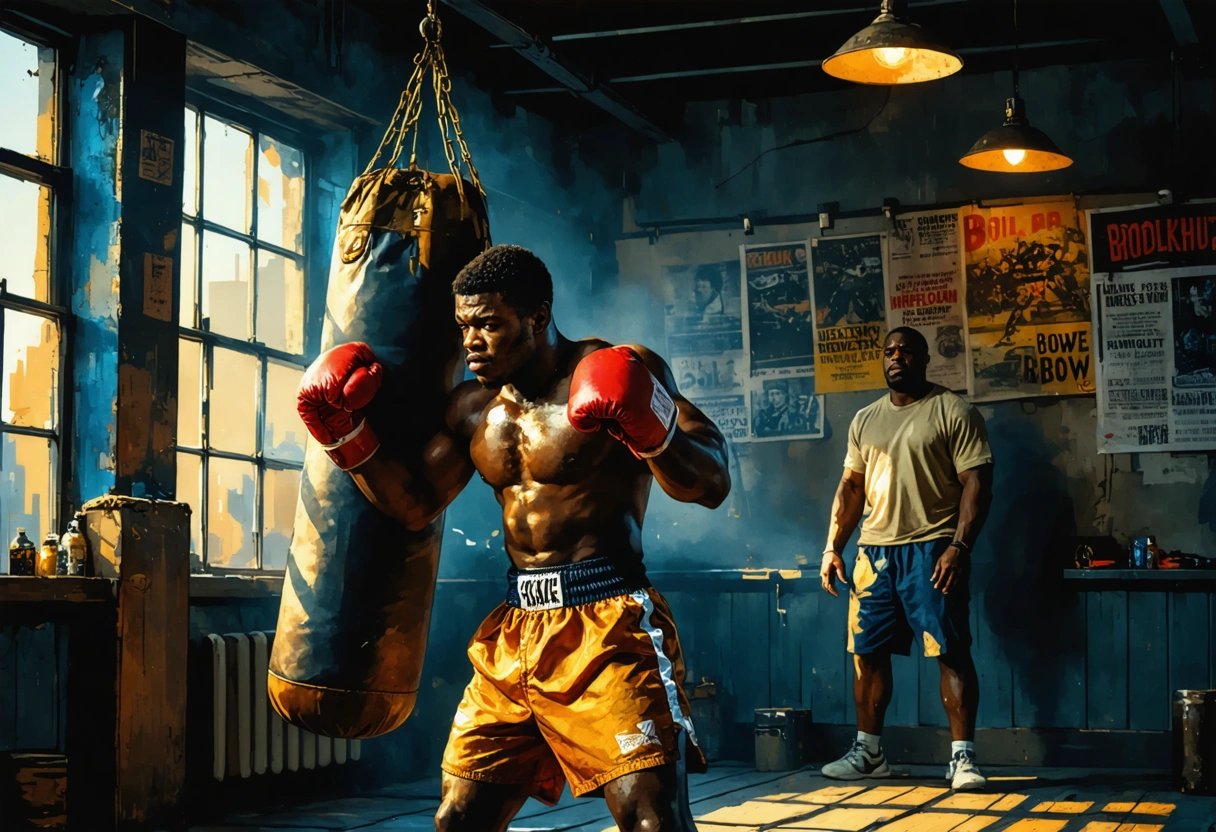
For those interested in exploring the socioeconomic backdrop of Brownsville and its influence on athletes, the NPR feature on Brownsville’s history offers a comprehensive look at the neighborhood that shaped Bowe’s early life.
Amateur Glory: Building the Foundation
Riddick Bowe’s amateur career was nothing short of remarkable. His imposing frame, at 6-foot-5 and over 220 pounds, made him an intimidating presence in the ring. Yet, it was his technical proficiency and ring intelligence that truly set him apart. Bowe amassed an amateur record of 104 wins and 18 losses, capturing multiple national titles, including the prestigious National Golden Gloves.
A pivotal moment in Bowe’s amateur career came during the 1988 United States Olympic trials. His victory there secured his place on the U.S. Olympic team, setting the stage for his international debut. The Olympic boxing environment, with its emphasis on skill and tactical acumen, helped hone Bowe’s abilities further. He faced a string of talented opponents, each presenting different challenges that tested his adaptability and resilience.
Bowe’s Olympic journey was not just about personal achievement; it was a testament to the strength of American amateur boxing during the late 1980s. His success inspired a new generation of fighters and highlighted the importance of grassroots programs in nurturing world-class talent. For a detailed look at the evolution of amateur boxing in the United States, visit the USA Boxing’s historical overview.
Olympic Triumph: Seoul 1988 and Its Aftermath
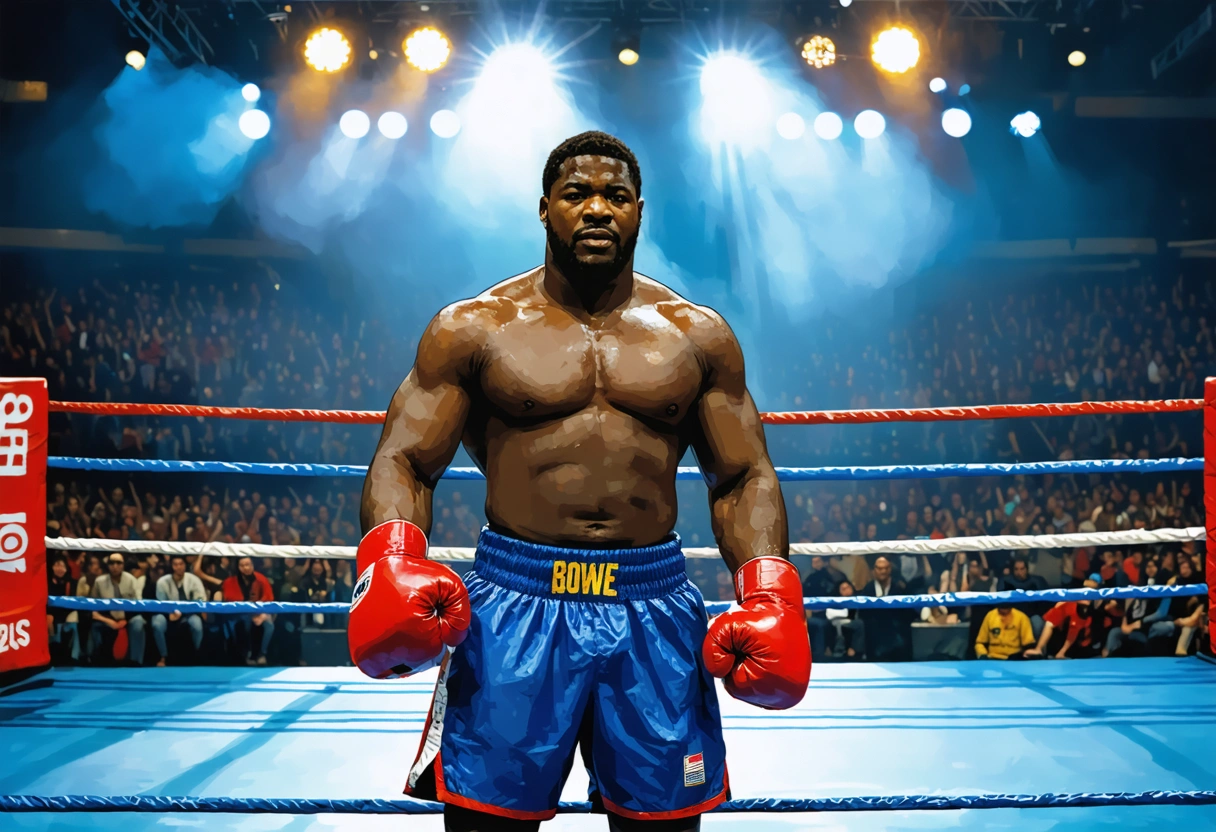
The 1988 Seoul Olympics marked a watershed moment in Riddick Bowe’s career. Competing in the super heavyweight division, Bowe showcased his formidable skills and determination. He progressed through the tournament, defeating notable international competitors and capturing the attention of boxing aficionados worldwide.
In the gold medal bout, Bowe faced Lennox Lewis, a future rival and another future heavyweight champion. The fight was a classic clash of styles—Bowe’s aggression and inside fighting versus Lewis’s reach and tactical approach. Despite a valiant effort, Bowe lost to Lewis after the referee stopped the contest in the second round. While Bowe returned home with a silver medal, the experience galvanized him. It served as both a humbling moment and a springboard for his entry into the professional ranks.
The Olympic experience was transformative, providing Bowe with invaluable exposure and connections. Promoters and trainers began to take serious interest in his potential as a future world champion. The Olympics also exposed Bowe to the demands of international competition, preparing him for the global spotlight that awaited in the professional arena. For an in-depth analysis of the 1988 Olympic boxing tournament and its historical significance, refer to the Olympedia record of the Seoul Games.
Turning Pro: The Meteoric Rise of ‘Big Daddy’
Riddick Bowe turned professional in March 1989, making an immediate impact with his blend of size, speed, and punching power. Under the management of Rock Newman and the watchful guidance of legendary trainer Eddie Futch, Bowe’s early professional fights were marked by a series of decisive knockouts. His team carefully selected opponents, allowing Bowe to refine his skills and build confidence.
Bowe’s professional ascent was characterized by steady progression and strategic matchmaking. He quickly amassed an impressive winning streak, capturing regional and national titles along the way. His displays of power and technical acumen earned him a dedicated fan base and kept him in the conversation as a future heavyweight contender. By 1992, Bowe had established himself as the number one challenger for the heavyweight crown.
For those interested in the intricacies of a boxer’s transition from amateur to professional ranks, the analysis by Ring Magazine provides valuable insights into the challenges and opportunities faced by fighters like Bowe.
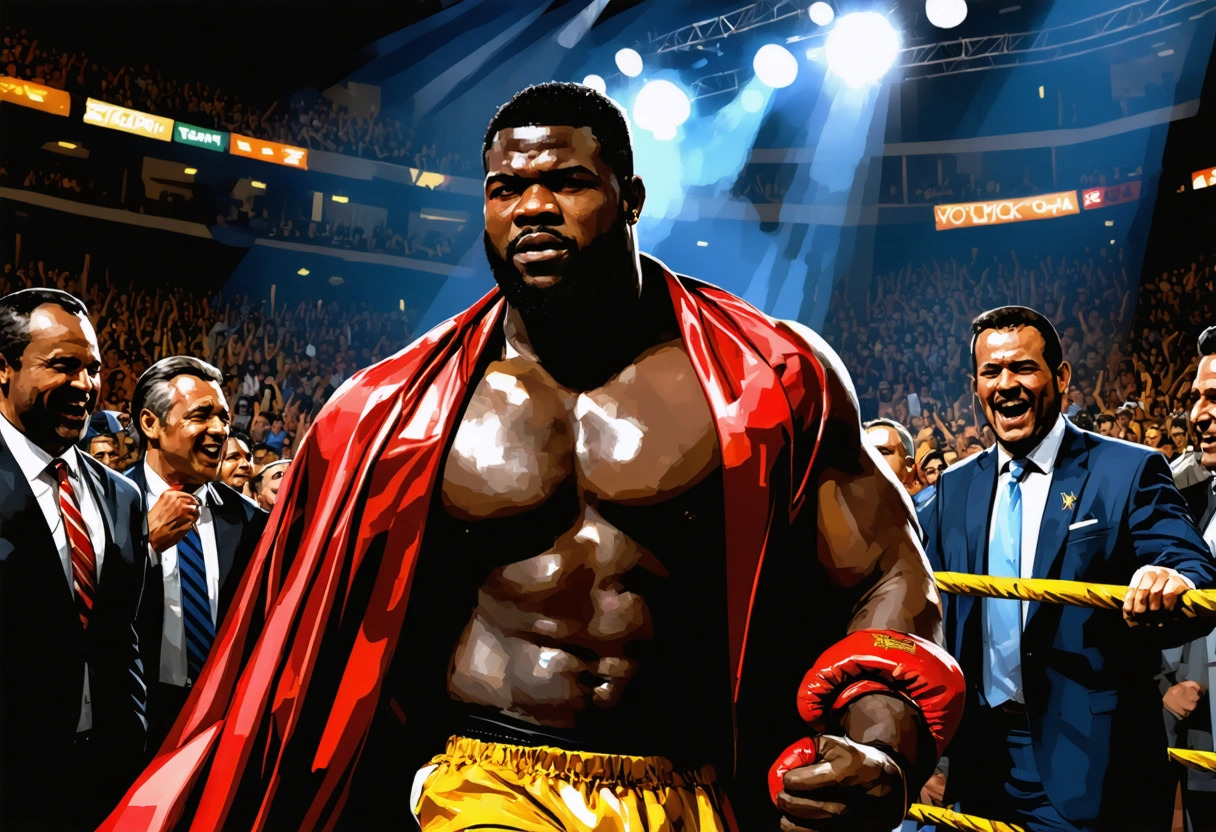
The Undisputed Heavyweight Champion: Bowe vs. Holyfield and Boxing Immortality
The zenith of Riddick Bowe’s career came in November 1992, when he faced the reigning heavyweight champion Evander Holyfield. The bout, held at the Thomas & Mack Center in Las Vegas, was a classic in every sense. Bowe entered the ring as the underdog, but his size, stamina, and tactical acumen proved decisive.
The fight unfolded as an epic contest of wills, with both men trading punishing blows over twelve grueling rounds. The tenth round, in particular, is widely regarded as one of the greatest rounds in heavyweight history, with both fighters demonstrating extraordinary courage and resilience. Bowe emerged victorious by unanimous decision, claiming the WBA, WBC, and IBF heavyweight titles and becoming the undisputed heavyweight champion of the world.
This victory catapulted Bowe into the pantheon of boxing greats. He was celebrated for his ability to blend raw power with technical sophistication, and his rivalry with Holyfield would come to define an era. The Bowe-Holyfield trilogy, which spanned three bouts between 1992 and 1995, remains one of the most fiercely contested rivalries in boxing history, with each encounter showcasing the best of both fighters.
For a comprehensive breakdown of the Bowe-Holyfield rivalry and its place in boxing lore, visit this detailed history of the trilogy.
Challenges, Controversies, and Unfulfilled Potential
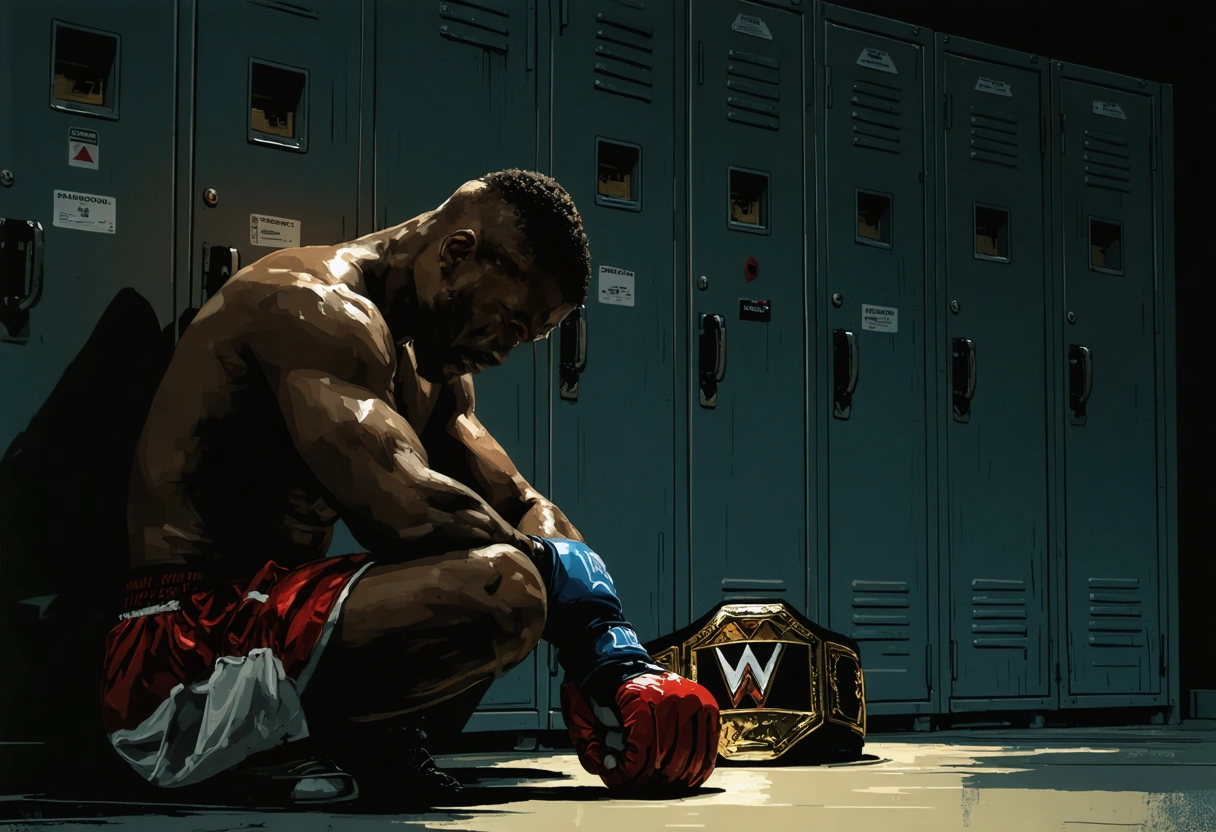
While Bowe’s triumphs in the ring were extraordinary, his career was also marked by controversy and missed opportunities. One of the most debated moments came shortly after he won the undisputed championship. In a move that shocked the boxing world, Bowe famously discarded the WBC title in a trash can, refusing to fight mandatory challenger Lennox Lewis due to disagreements over purse splits and promotional disputes. This act, while symbolic of Bowe’s independent streak, also cost him the opportunity to unify the division fully and left fans longing for a definitive showdown with Lewis.
Outside the ring, Bowe’s personal life was tumultuous. He struggled with issues related to discipline, motivation, and outside distractions. These challenges contributed to inconsistent performances and a premature decline in his abilities. Despite these setbacks, Bowe remained a formidable force, defending his titles and engaging in memorable battles, most notably the infamous “Fan Man” fight during his second bout with Holyfield.
To better understand how off-the-ring controversies can shape a champion’s legacy, the Sports Illustrated feature on Bowe’s era offers a nuanced perspective on the intersection of athletic greatness and personal struggle.
Legacy and Influence: Riddick Bowe’s Enduring Impact on Boxing
Riddick Bowe’s place in boxing history is secure, not just for his accomplishments but for the way he fought and the rivalries he forged. He was a heavyweight who could box as well as brawl, whose jab was as effective as his uppercut, and whose heart matched his talent. His trilogy with Holyfield is consistently cited among the greatest series of fights in heavyweight history, and his battles inspired countless young fighters to pursue the sport.
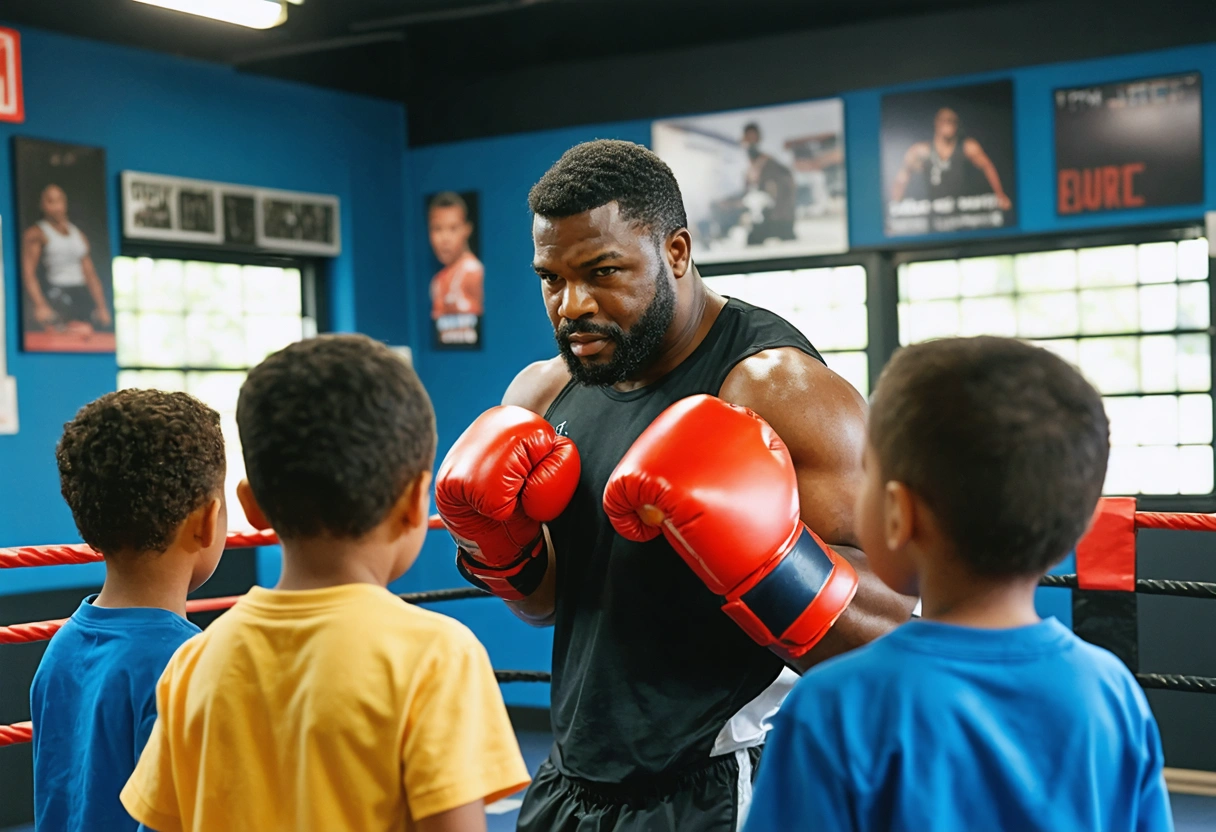
Beyond the ring, Bowe’s story is a cautionary tale about the perils of fame and the importance of discipline. Despite his relatively short reign at the top, his impact continues to be felt. Modern heavyweights often cite Bowe as an influence, and analysts continue to dissect his fights for lessons in strategy, power, and resilience. His life and career offer invaluable insights into the complexities of professional sports, the pressures of expectation, and the enduring allure of the heavyweight division.
For a deeper analysis of Bowe’s technical approach and influence on modern heavyweights, the in-depth tactical breakdown by Bloody Elbow is a highly recommended resource.
The Legend of ‘Big Daddy’ and the Lessons of His Journey
Riddick ‘Big Daddy’ Bowe’s ascent from the streets of Brooklyn to Olympic glory and the summit of professional boxing is a story of inspiration, ambition, and resilience. He remains a symbol of what is possible with talent, hard work, and determination, even as his career serves as a reminder of the challenges that accompany greatness. Bowe’s journey is emblematic of boxing’s enduring appeal—where triumph and adversity are inextricably linked, and where the pursuit of excellence is a never-ending quest.
As we reflect on Bowe’s legacy, it becomes clear that his influence extends far beyond the statistics or the championship belts. He exemplified the fighting spirit, the will to overcome obstacles, and the ability to capture the hearts of fans across generations. The story of Riddick Bowe is not just a chapter in boxing history, but a testament to the human spirit’s capacity for greatness. For those who wish to explore more about the legends of boxing and the lessons they impart, the Britannica guide to boxing history offers a wealth of information and context.
Riddick Bowe’s journey continues to inspire athletes, fans, and anyone who believes in the transformative power of sport. His legacy, forged in the heat of battle and tempered by life’s challenges, will endure as long as boxing captivates the world.
